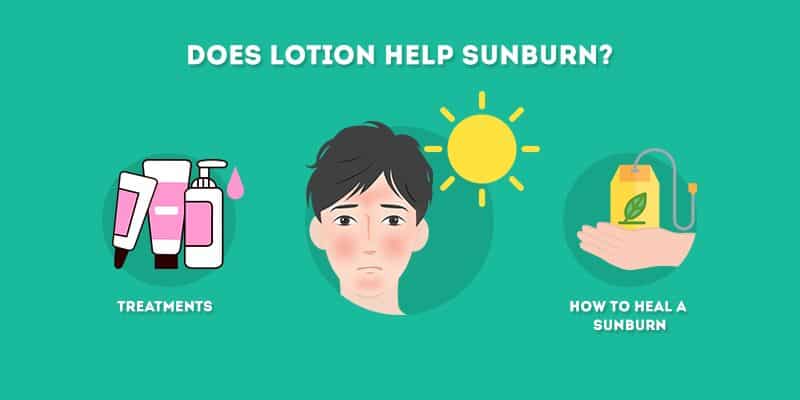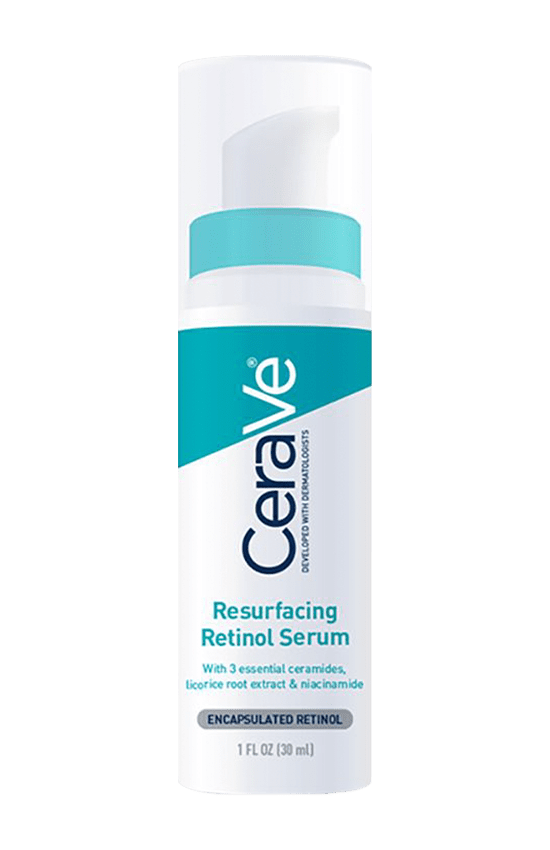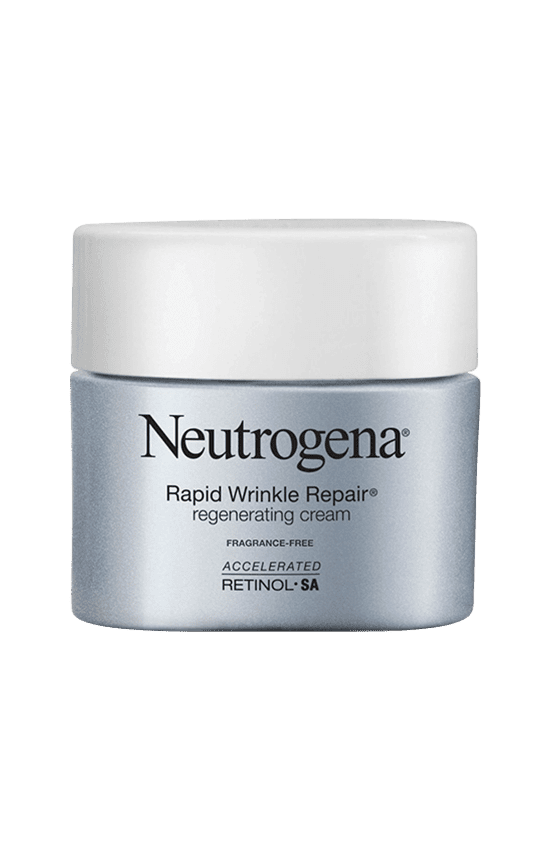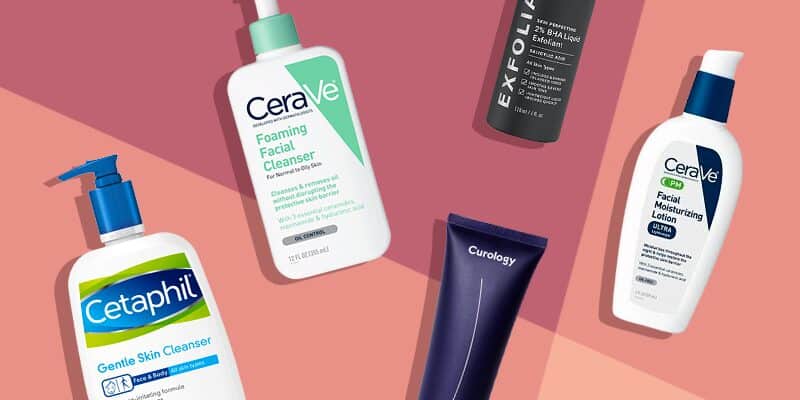The symptoms of sunburn begin to make themselves known after about two hours from the time of exposure. To minimize the skin damage and discomfort that comes with sunburn, it is important to begin treating the burn as soon as possible.
Read on to learn about sun exposure, and what sunburn lotions to look out for.
Does Lotion Help Sunburn?
Many wonder - does lotion help sunburn? The answer is yes, according to Healthline.
However, it select the right lotion is critical. Here are the facts:
- The gold standard ingredient to look for is aloe vera, as studies have shown it to be effective in burn management.
- Lotions that are heavy and thick should be avoided because they trap the heat in the skin, hurting the healing process.
- According to aad.org, you should avoid lotions that contain the ingredients petroleum, benzocaine, or lidocaine.
For particularly bothersome areas, speak to your doctor about using a hydrocortisone cream.
How to Heal a Sunburn
Once it becomes obvious that you are suffering from sunburn, there are a number of steps that you can take to speed up the healing process and alleviate the discomfort:
1. Black Tea Baths
The polyphenols found in black tea have been shown to decrease the effects of damaging UVA and UVB rays on the skin. The antioxidant and anti-inflammatory properties of these molecules work to heal sunburn and provide relief. Using at least five to eight bags of black tea, brew a strong pot and add it to bath water before soaking your body in the mixture. Be sure to use only lukewarm water because irritation can occur if the temperature is too hot or cold.
2. Aloe Vera
This naturally occurring plant product has a host of medicinal applications because of its soothing and healing properties. The anti-inflammatory properties of aloe vera deliver direct relief to the burn area. Because aloe vera is 99 percent water, it is able to provide healing hydration to the skin. The glycoprotein and polysaccharide in aloe vera also work in tandem to soothe the irritated skin and aid in skin repair and regeneration. The most effective aloe treatments are free of added chemicals.
3.Drink Plenty of Water
Sunburn makes the skin dry and dehydrated because it sucks out all of the moisture as it heals. By making the effort to drink extra water, you will replace the lost body fluids and help your skin to help more quickly. Drinking extra water will also guard against hydration inside your body as it works to heal itself.
4. Take Ibuprofen
An oral non-steroidal anti-inflammatory medication can help to relieve the pain often associated with sunburn. For best results, the medicine should be taken as soon as you realize that you have suffered a sunburn. Ibuprofen can work to relieve pain and reduce the redness and swelling that accompanies sunburn. As your skin continues to heal, continual use of ibuprofen can also reduce minimize the effects of other symptoms related to sunburns such as a headache and fever.
5. Avoid the Sun
Especially if you suffer a sunburn while on vacation, it can be challenging to avoid the sun after the symptoms set in. However, it is critical to avoid additional sun exposure once you have a sunburn. As your skin begins to peel and heal, the fresh skin will be even more susceptible to further burning. If you must go outside, be sure to stay in the shade and wear protective clothing so that you do not further burn the skin and negate the healing process.
Best Lotions for Sunburns
Consider these great aloe vera gels for your sunburn.
1. Seven Minerals Organic Aloe Vera Gel
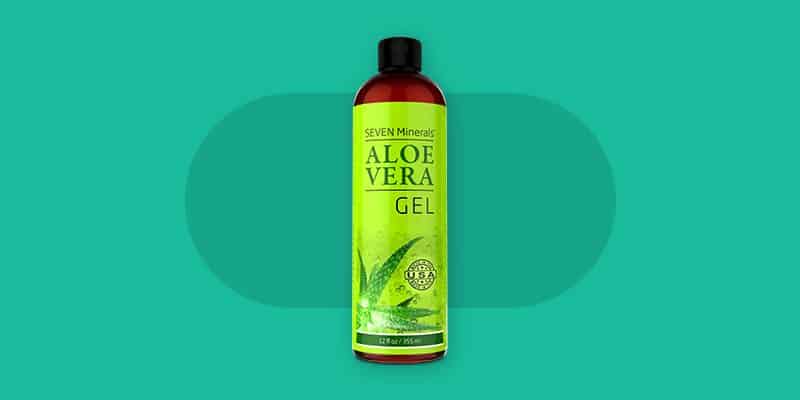
This soothing formula is cold-pressed with an added natural thickener to ensure easy application. With this gel, you will not have to worry about sticky or watery residue. This product is made from 100 percent fresh cut aloe plant, giving you the confidence that you need to know the gel is natural and ideal for all skin types. The gel is also free of harmful and irritating Xanthan, Carrageenan, and Carbomers.
2. Natur-Sense Organic Aloe Vera Gel
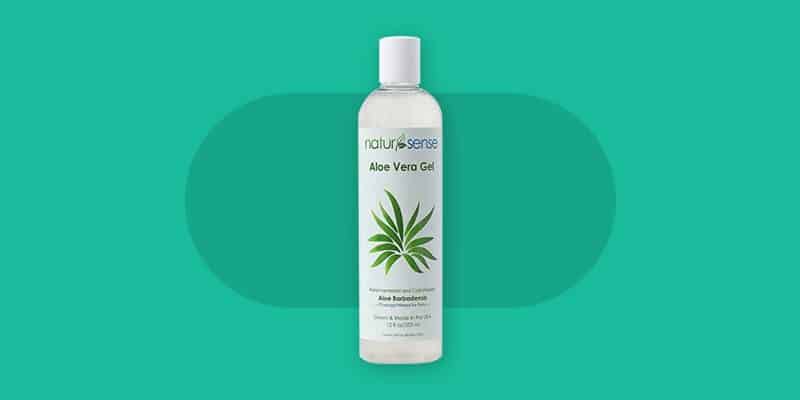
This eco-friendly, cold-pressed formula uses the purest aloe available to create its popular gel. This product is free of fragrances so that you can feel safe using it on any skin type. The all-natural aloe is perfect for soothing sunburn and other skin irritations. The anti-fungal and anti-viral properties of the aloe will work to reduce the incidence of peeling after sunburn while delivering a soothing relief as close as Mother Nature intended it to be.
FAQ:
What is the fastest way to treat a sunburn?
The quickest way to treat a sunburn is to first immediately get out of the sun and avoid further exposure. To speed up the healing process, you can take a black tea bath followed by a thorough application of aloe vera.
Can you prevent sunburns from peeling?
Although it is not likely to be prevented completely, you can lessen the amount of peeling by frequently applying a liberal coating of aloe vera lotion to the affected skin. Keeping the skin properly moisturized will work to reduce severe peeling.
Can you get rid of a sunburn in an hour?
No, it is not possible to get rid of sunburn in only one hour. However, soaking in a black tea bath can reduce the severity of the burn and assist in the healing process so that there are not as many side effects.
Can you use coconut oil on sunburns?
The use of coconut oil to treat sunburn is not recommended. This comedogenic oil is too thick and can trap the heat inside the skin, deterring the effective healing.
How long does it take for sunburns to heal?
Although it varies from person to person, the average length of a sunburn healing process is approximately two days. The process is dependent on the severity of the burn, with more serious burns taking up to one week to completely heal.
The Bottom Line
Yes, lotion does help sunburns. Look for lotions that contain aloe vera, as studies have shown it can be helpful in the management. Additionally, black tea baths, aloe vera, avoiding the sun are all great ways to help sunburns.
